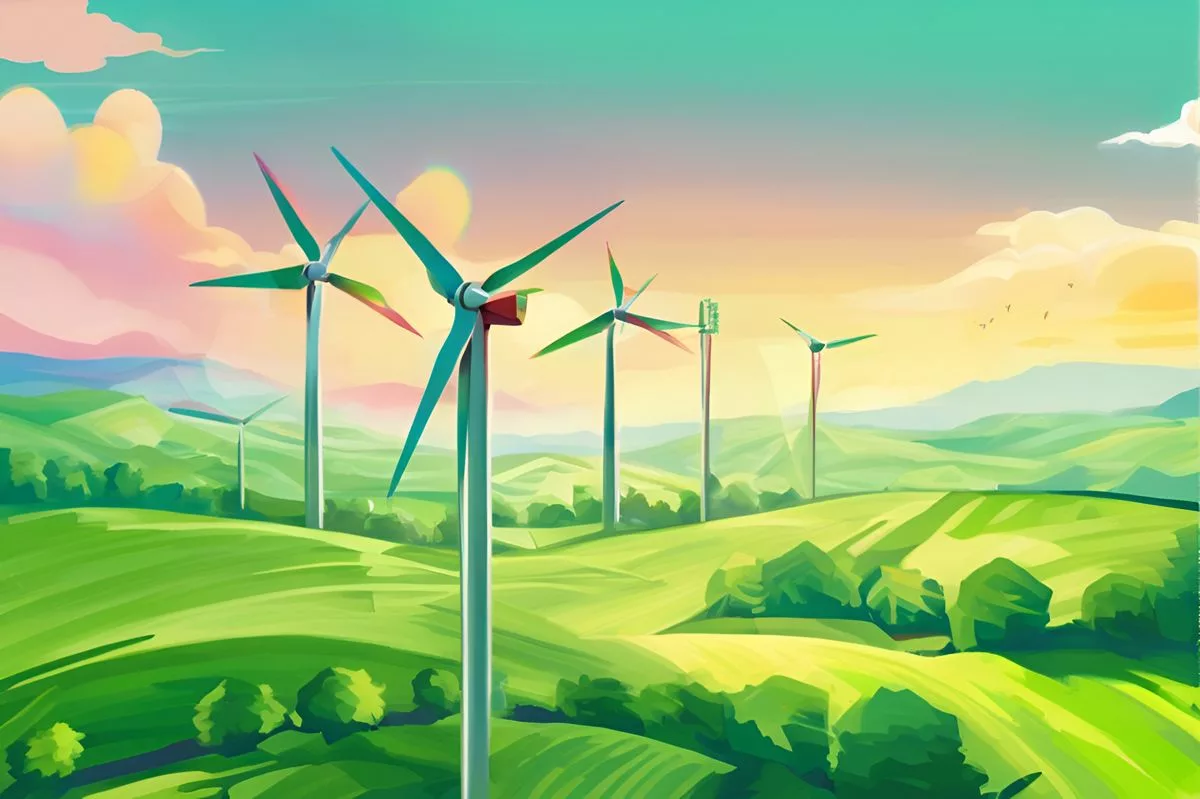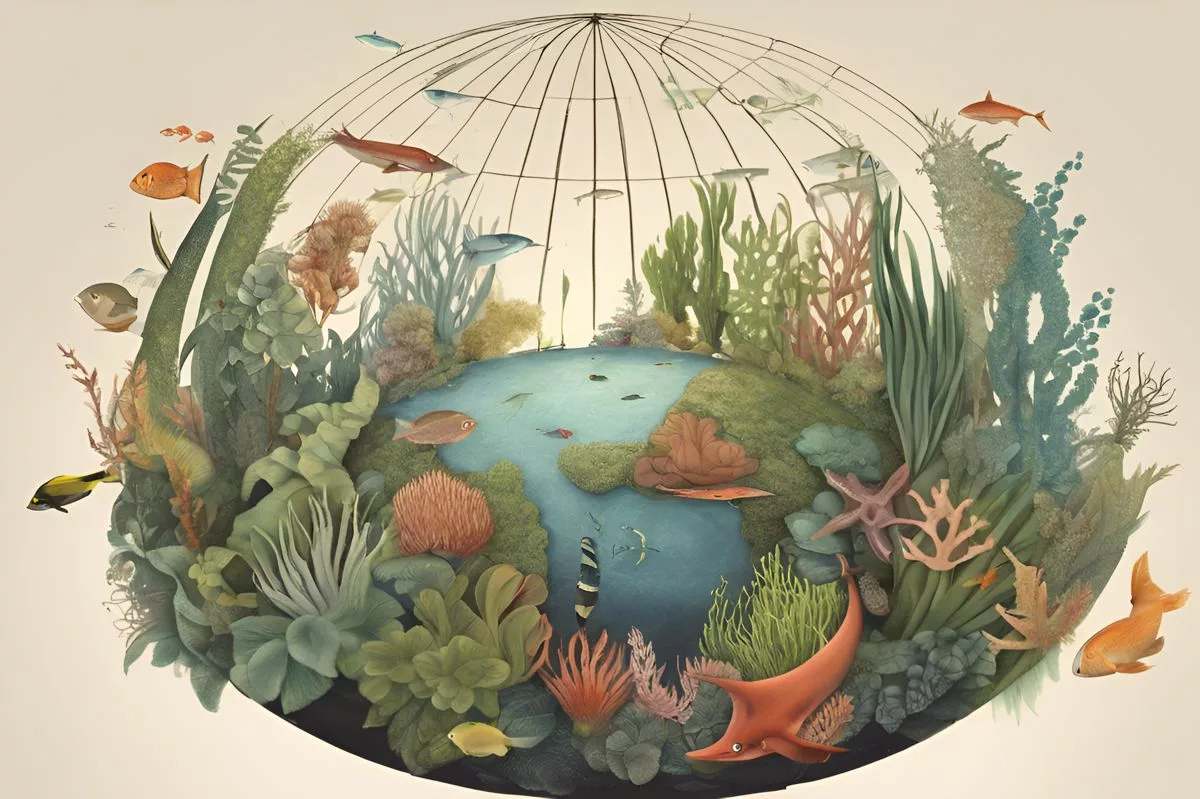South Africa is stepping boldly into a bright future powered by renewable energy. At a recent seminar in Johannesburg, Deputy Minister Samantha Graham-Maré shared a message of hope as she addressed plans to boost energy and create jobs through partnerships with Independent Power Producers. With over 12 gigawatts of renewable energy on the horizon, the nation is overcoming challenges like power outages and fostering economic growth. The event marked a significant moment in the country’s journey, highlighting the collaboration needed to unlock a sustainable and prosperous energy landscape. South Africa is ready to embrace a new dawn in energy innovation!
What is the future of renewable energy in South Africa?
South Africa’s future in renewable energy is promising, driven by strategic initiatives like the Renewable Energy Master Plan (SAREM) and ongoing collaboration between government and Independent Power Producers (IPPs). With over 12 gigawatts planned and a focus on economic growth, the nation aims to secure energy stability and create jobs.
A New Dawn at the Gallagher Convention Centre
In the bustling city of Johannesburg, the Gallagher Convention Centre recently played host to a pivotal moment for South Africa’s energy landscape. Deputy Minister Samantha Graham-Maré took the stage at the Renewable Energy Seminar, her words infused with a sense of hope and resolve. This event was not merely a gathering; it marked the first Independent Power Producers (IPP) Summit, orchestrated by the freshly minted Ministry of Energy and Electricity. As she addressed the audience, Deputy Minister Maré spotlighted the significance of this summit in invigorating the discourse around South Africa’s renewable energy sector—a sector vital to ensuring the country’s energy security, spurring economic progress, and generating employment.
Deputy Minister Maré was quick to highlight the indispensable role of Independent Power Producers in diversifying the nation’s energy mix. This diversification has been key in alleviating the decades-long challenge of loadshedding, a term that has haunted both citizens and businesses. South Africa has enjoyed nearly 200 days without these crippling power outages, a milestone that injects a renewed sense of optimism for the country’s future. The Deputy Minister commended the tireless work of Eskom, the national power utility, alongside other stakeholders, for their unwavering commitment to resolving this economic drain.
Reflecting on the strides made in the renewable energy sector, Deputy Minister Maré recalled that this November marks fourteen years since the launch of the renewable energy bid windows in South Africa. These initiatives opened a new chapter in energy production, demonstrating the transformative power of Public-Private Partnerships. The Independent Power Producers Office has been instrumental in this success, continually enhancing the procurement process by integrating insights from previous rounds. So far, over 7 gigawatts of power have been added to the national grid, with ambitions to surpass 12 gigawatts from the initial seven bid windows. This milestone not only underscores the program’s achievements but also elevates its status as a model for similar initiatives worldwide.
Charting the Course with Strategic Plans
The seminar placed a significant focus on the South African Renewable Energy Master Plan (SAREM), a project under the stewardship of Deputy Minister Maré. SAREM is more than just a government blueprint; it acts as a catalyst for the industrialization of renewable energy value chains, promising to make a tangible impact on economic growth and job creation. As the plan nears its final departmental approvals, the government anticipates releasing its implementation strategy by the year’s end, signaling the dawn of a new era for renewable energy in South Africa.
In addition to SAREM, the seminar addressed the Integrated Resource Plan (IRP) 2023, which initially faced criticism upon its release. To address these concerns, the department launched a comprehensive review, incorporating feedback from a wide array of stakeholders. The revised IRP, now more inclusive and thorough, aims for cabinet approval by the close of the fiscal year.
Running parallel to these discussions, the Gas Master Plan underwent intensive model simulations. This plan aims to align with the updated IRP, positioning gas as a transitional fuel in power generation. The national strategy envisions harnessing 6,000 megawatts of gas power, with the project slated for completion by the end of the financial year.
Building a Collaborative Future
Deputy Minister Maré conveyed a deep-seated belief in the sector’s potential, envisioning it as a cornerstone of South Africa’s prosperous future. The billions of dollars already invested in the sector serve as a testament to this vision, with expectations for continued growth. She urged collaboration among seminar attendees to pinpoint and overcome obstacles hindering progress, stressing the importance of practical solutions for unlocking economic and employment opportunities.
The seminar’s first session showcased government triumphs, featuring influential figures such as Minister Dr. Kgosientsho Ramokgopa and the Heads of the IPP Office and the National Transmission Company. These leaders have been crucial in charting the sector’s future. The second session transitioned to the private sector’s perspective, an uncommon approach in government forums, highlighting a willingness to listen and adapt.
Deputy Minister Maré emphasized the necessity of active listening and introspection as pivotal steps in overcoming implementation challenges. Her assurance of the government’s readiness to learn and evolve struck a chord with the audience, fostering an environment of open dialogue and collaboration.
A Bright Horizon for Renewable Energy
The seminar’s narrative projected a promising future, one illuminated by the potential of renewable energy. This vision aligns with the goals of the Government of National Unity, which Deputy Minister Maré proudly represents. She concluded by inviting contributions and ideas from all present, reinforcing the collaborative spirit essential for achieving South Africa’s energy and economic goals.
In her address, Deputy Minister Maré wove together historical and contemporary insights, drawing on South Africa’s rich energy heritage. Her narrative intertwined with analytical perspectives, offering a sophisticated yet accessible exploration of the renewable energy landscape. The seminar’s discussions, while rooted in recent developments, echoed broader historical and artistic movements that have shaped the nation’s approach to innovation and progress.
South Africa stands on the brink of a renewable revolution, buoyed by the collective efforts and aspirations of its people. The seminar at the Gallagher Convention Centre served as a testament to this journey, bringing together visionaries and stakeholders committed to realizing a sustainable and prosperous future.
FAQ on South Africa’s Renewable Energy Initiatives
What is the current state of renewable energy in South Africa?
South Africa is actively advancing its renewable energy sector, with over 12 gigawatts of renewable energy planned for the future. The government is collaborating with Independent Power Producers (IPPs) to enhance energy stability and spur economic growth, marking a significant shift toward sustainable energy solutions.
What role do Independent Power Producers play in South Africa’s energy landscape?
Independent Power Producers (IPPs) are crucial in diversifying South Africa’s energy mix. Their involvement has been instrumental in alleviating the challenges of loadshedding and enhancing the country’s energy security. The government recognizes their contributions as vital to the successful implementation of its renewable energy strategies.
What are the key plans guiding South Africa’s renewable energy future?
The South African Renewable Energy Master Plan (SAREM) and the Integrated Resource Plan (IRP) 2023 are the primary strategic plans shaping the future of renewable energy in the country. SAREM aims to industrialize renewable energy value chains, while the IRP is undergoing revisions to better reflect stakeholder feedback and aims for cabinet approval soon.
How has public-private collaboration influenced the renewable energy sector?
Public-private partnerships have been transformative in South Africa’s renewable energy journey. The initial renewable energy bid windows demonstrated this potential, resulting in over 7 gigawatts of power added to the national grid. Continuous collaboration is essential for identifying and overcoming obstacles in the sector.
What are the economic benefits expected from the renewable energy initiatives?
The push for renewable energy in South Africa is projected to create numerous job opportunities and stimulate economic growth. With significant investments already made in the sector, the government anticipates further development and employment prospects as the energy landscape evolves.
How can stakeholders contribute to the renewable energy initiatives in South Africa?
Stakeholders are encouraged to participate actively by sharing insights and proposing solutions to challenges in the renewable energy sector. The government is open to listening to various perspectives, with the aim of fostering a collaborative environment that drives progress toward a sustainable energy future.












